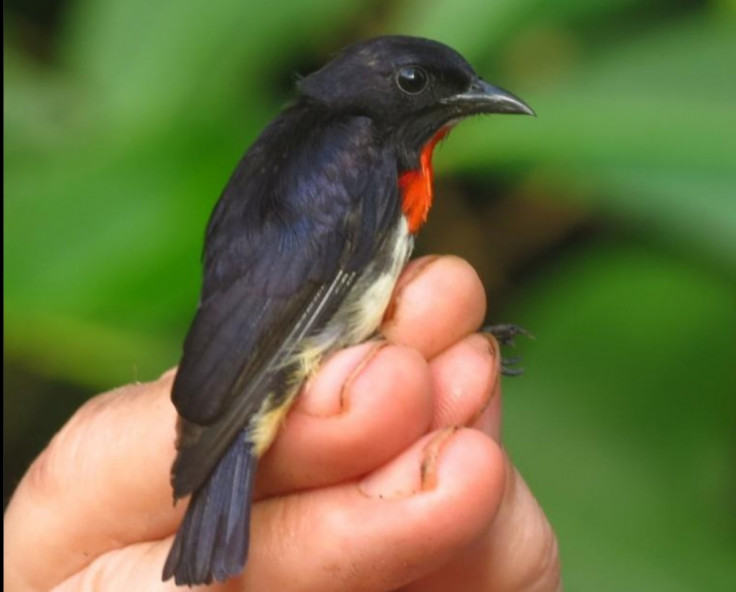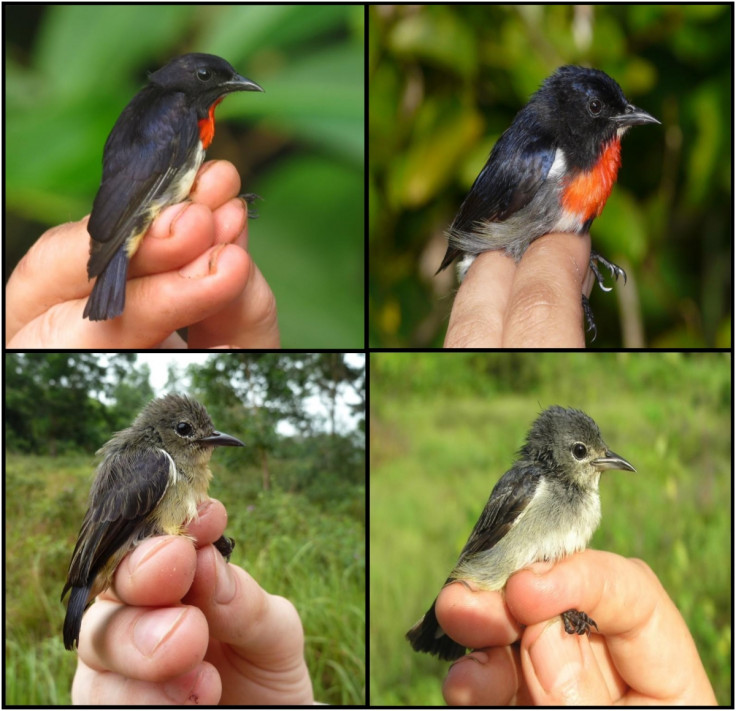Wakatobi Flowerpecker: New Colourful Species of Bird Discovered in Indonesia

A new species of bird has been discovered in Indonesia and has been dubbed the Wakatobi Flowerpecker.
Zoologists from Trinity College Dublin, describing their finding in the journal PLOS One, said the colourful bird from the Wakatobi Islands should be recognised as a unique species.
They found the species after numerous expeditions to South-east Sulawesi and its offshore islands.
While looking similar to the Grey-sided Flowerpecker, the Wakatobi Flowerpeckers are much larger and generally distinct, the authors said.
Genetic data also showed the two species did not mix or interbreed, suggesting they do not cross the stretch of ocean between them.
The Sulawesi region of Indonesia is known as being a biodiversity hotspot, yet it has been poorly studied. The researchers say there is likely a significant underestimation of the number of species of bird in the Sulawesi region because of an absence of genetic analysis.

This suggests there may be many more bird species awaiting discovery. The zoologists say further research into the bird populations of the area should be undertaken.
Nicola Marples, associate professor of Zoology at Trinity, said: "The identification of a species that is confined entirely to the Wakatobi Islands will require conservation organisations such as BirdLife International to reassess the protection status afforded to these islands.
"While the islands sit within the Wakatobi Marine National Park, they currently receive no protection. The Wakatobi Islands are an incredibly exciting place to work and they serve as a unique living laboratory in which we can study evolution in action."
Sean Kelly, lead author of the study, said: "Accurate data on the distribution and status of bird species are regularly used to inform conservation practices and industrial development. As humans are changing the natural environments of Sulawesi at an incredibly fast rate, the discovery and description of species in the region is of major importance.
"This study also highlights the need for integrative, multi-disciplinary research in the region. Without this we will likely fail to recognise and appreciate the true biodiversity of this remarkable region. Furthermore, we run the risk of losing evolutionarily distinct species before we can even discover or enjoy them."
© Copyright IBTimes 2025. All rights reserved.






















